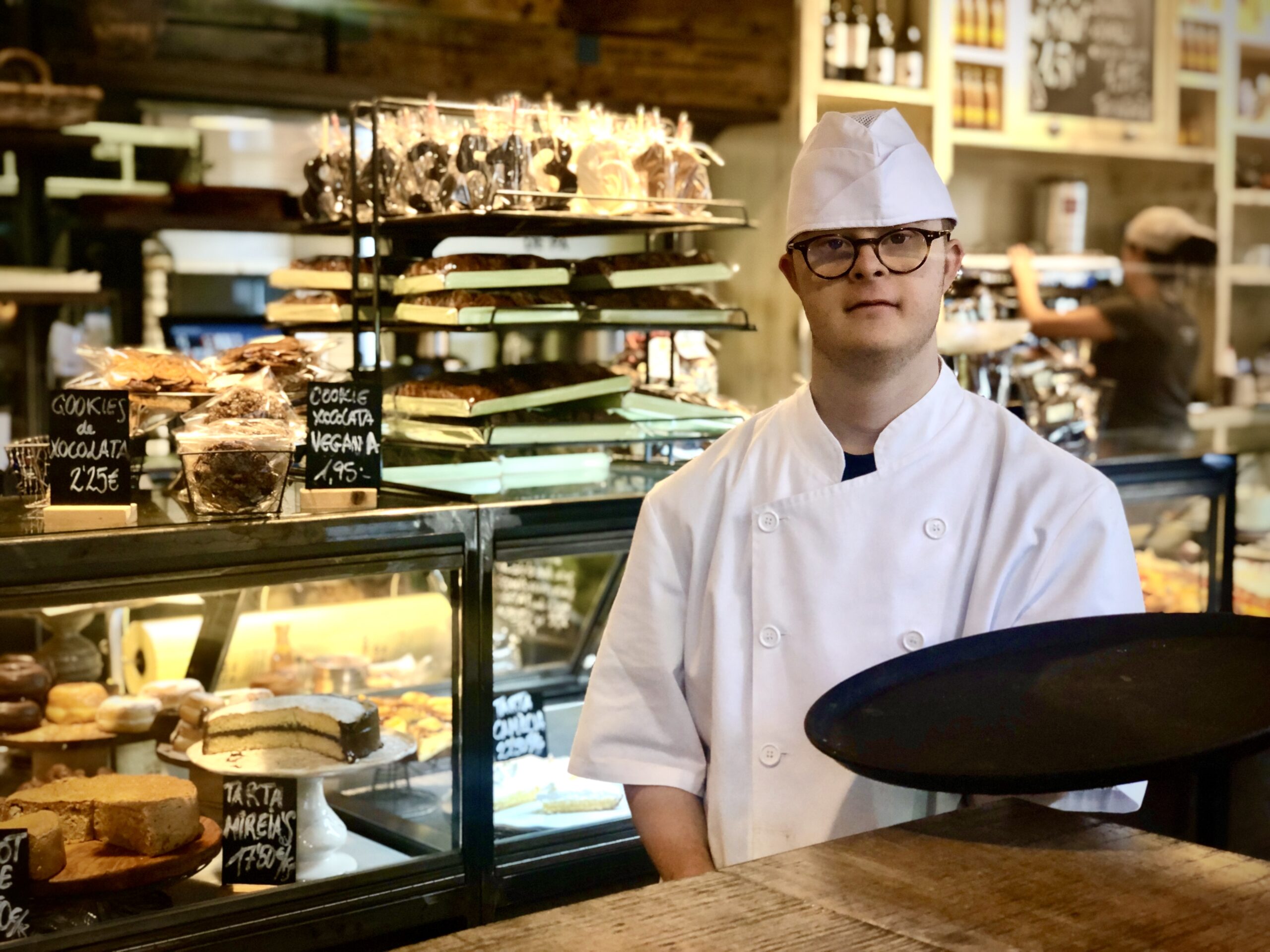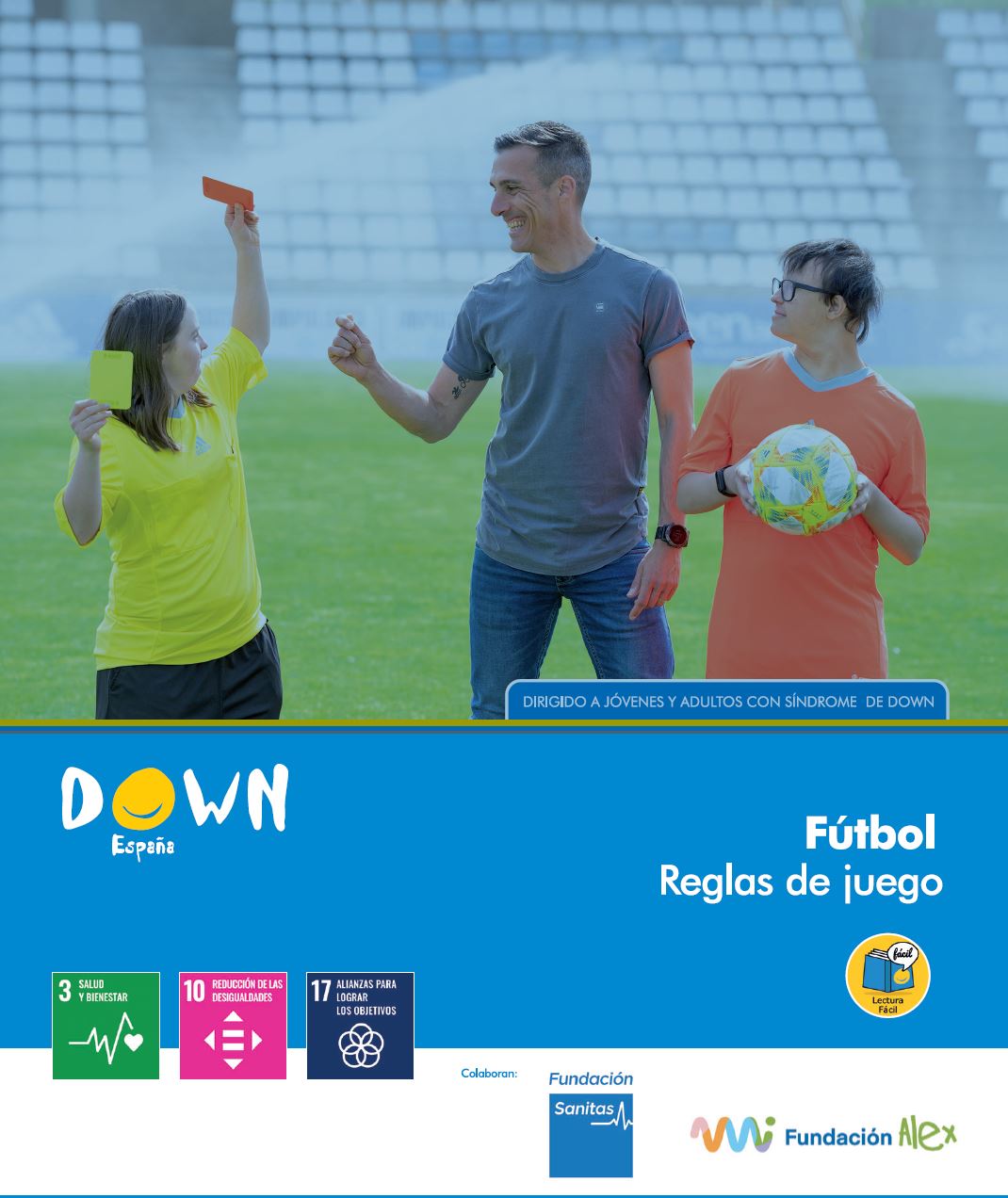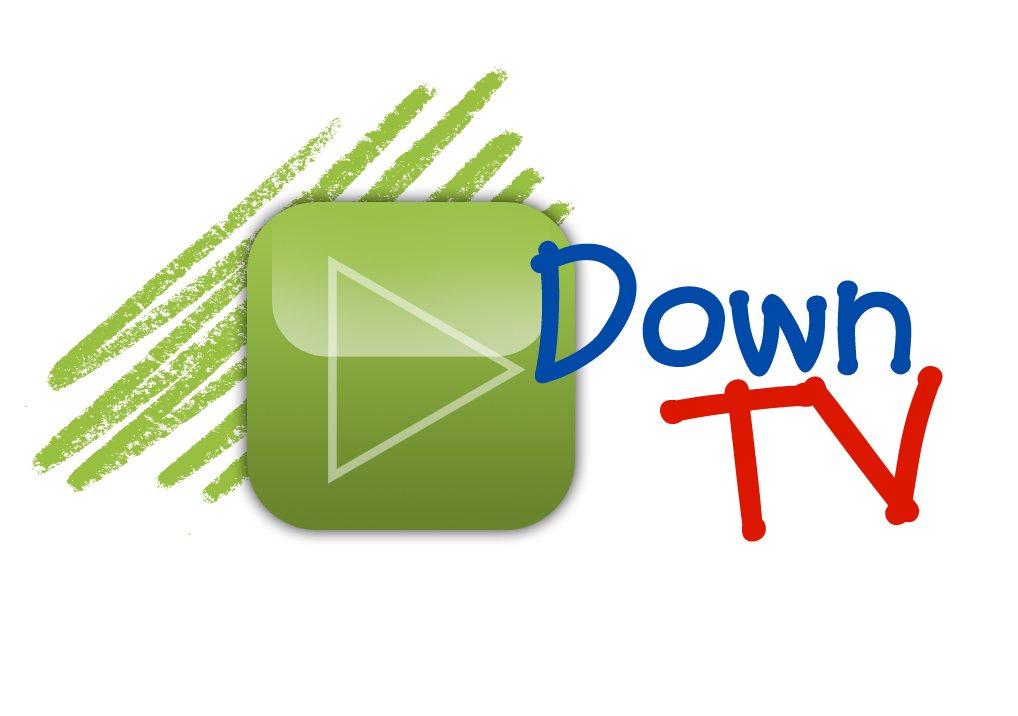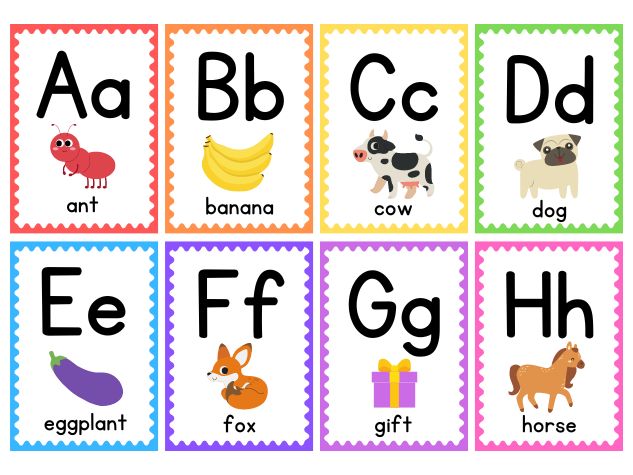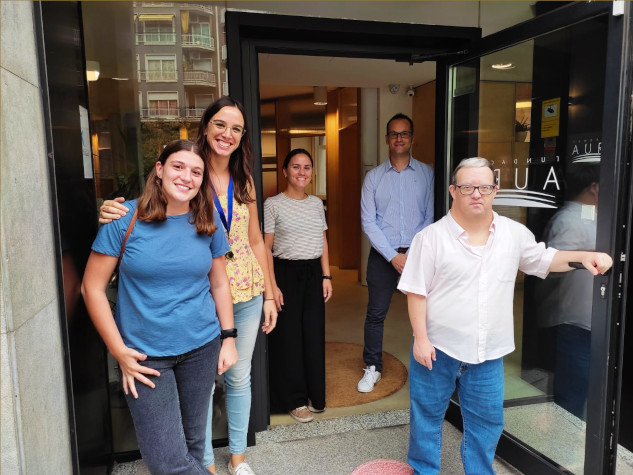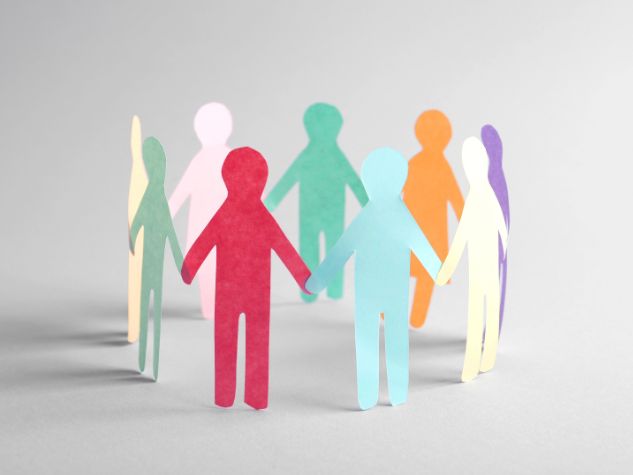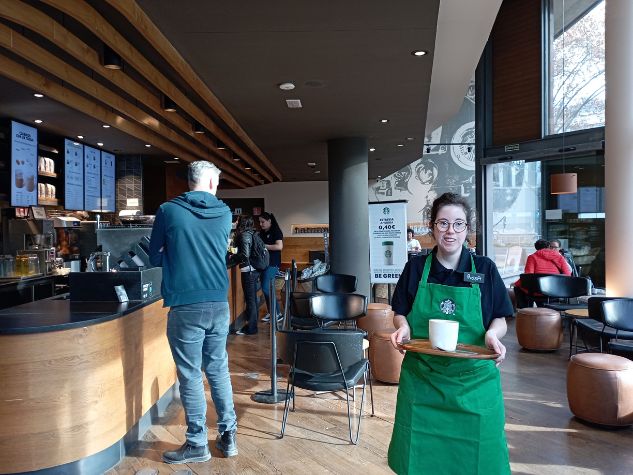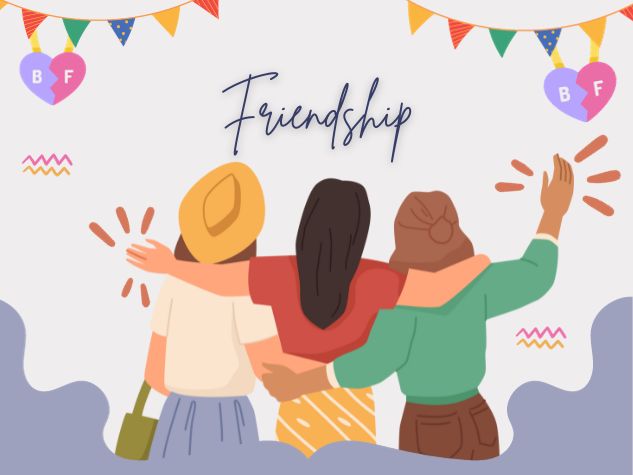We support people who have Down Syndrome to get into permanent jobs.
We know that first employers are a little bit nervous, a little bit apprehensive. They want to reach out to people with learning disabilities and bring them into the workforce but they don’t exactly know how to do it. This is when organizations such as Aura Foundation come in, offering Supported Employment.
Aura Foundation guides employers through every stage of the process. From the initial meeting to helping employers to carve a particular role, training them to understand the learning profile of people who have Down Syndrome. What we tend to find is that people are concerned about reasonable adjustments, and they think reasonable adjustments are going to be significant and expensive,, but this is absolutely not the case. They are usually very minor things that Aura Foundation can advise you on. Workplace inclusion has a very positive impact on teams and workplaces; for example, people bound together over supporting somebody who perhaps hasn’t had as many opportunities as a typical person might have.
Aura Foundation gives support through all the recruitment process. They come to the workplace, assess the place, offer some advice, some suggestions , helps the organization to carve a role, and also with the job description, they will train the staff, they will support the business on an ongoing basis for as long as the person is with the organization.
The buddy system the associations operates is absolutely crucial to the success of the programme. A lot of people have a learning disability have a job coach going to work with them. There’s a lot of value in this. What it means is somebody goes with a person with a learning disability. The job coach trains the person with the disability to be able to do the job.
That’s fine, but it would be even greater to be trained by their colleagues or by their team members in a similar way that you would train any other person coming into the organization. So, we would like teams to designate a couple of buddies to get to know their new colleague, help them with the unwritten rules of the workplace, help them to understand what they need to do, the training, the induction, all of those things, and be a first point of contact. You might offer that up and ask people to volunteer to do that because many people will be genuinely very interested to be a buddy and would find it very rewarding.
Working changes the life of people with Down syndrome. This opportunity can be potentially life-changing because they may not have had this kind of opportunity before. They may have been overlooked for whatever reason just because employers aren’t aware of all the great skills and talents and abilities that we all have. We all have our strengths; we all have our talents and abilities.
Having that financial independence is huge. They can contribute, they feel that they are part of the community, they are doing something valuable, they are learning new skills and they have those great workplace relationships, they are part of the team.
Seeing people who have Down Syndrome and other learning disabilities in the workplace is really powerful in helping us to make a greater awareness of learning disability generally, across the whole population.
People with Down Syndrome usually have been to school or college, and they have probably had a few weeks of work experience in retail, catering, hospitality… and that’s great because those are all very valuable sectors, but we want let them know that there are so many other jobs out there such as logistics, warehousing, this type of jobs are very interesting and valuable, too. We want to broaden the horizons of people who have Down Syndrome, to say you have thought about working in a museum or a laboratory or a warehouse or something like that just to get them away from the sort of the traditional routes of catering, retail and hospitality and open up to the world of work as it’s open to everyone else
